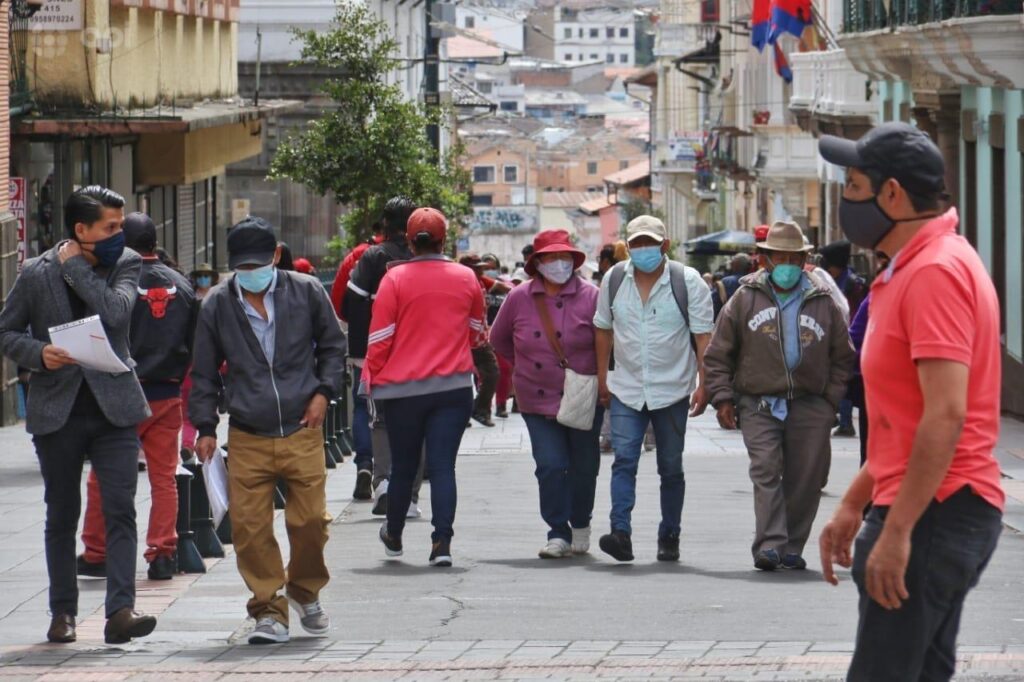In Mexico, 3.1% of GDP is spent on public investment, “that is a little more than last year, but it is still at very low levels.” Of this investment spending, 90% goes to the energy sector, so the necessary returns are not generated to grow and that public revenues are higher to address pressing issues such as health and education, explained Alejandra Macías, executive director of the Center of Economic and Budgetary Research (CIEP).
The need to generate more resources for the public treasury and its better administration intensified with the pandemic, which has affected the collection of taxes such as VAT and ISR, in addition to the fact that oil revenues have less relevance for the government, he said for his part Mariana Campos, coordinator of Public Expenditure and Accountability of México Evalúa.
Treasury figures detail that in 2014 oil income generated 30.7% of all budget revenues, while in 2015 -in the first half of Enrique Peña Nieto’s government- it fell to 19.8%. In 2019 it represented 17.7%, and until the end of January-November 2021 they had generated 17.1% of all public revenue.
“We are at the moment that decades ago Enrique Cárdenas (economist and professor at the Universidad Iberoamericana Puebla), told us in the 90s about the depletion of oil. We are arriving with a lot of pressure, it looks like a complicated year. In 2021, VAT collection was worrying, we have an exhausted Budget Revenue Stabilization Fund, we have been running out of options, this makes us propose a different route to the development of Mexico”, said Mariana Campos.
States are paramount
“It is not only necessary to think about new taxes, but also to integrate the states and municipalities that are underdeveloped in their public finances,” added the specialist from México Evalúa.
The participants of the first broadcast of 2022 of Encuentro Expansión represent think tanks focused on public finance. In the last Legislature of the Chamber of Deputies, they worked with Alfonso Ramírez Cuéllar, coordinator of the Working Group for the Treasury Transition, in carrying out an analysis of public finances, and proposals for changes in their favor. The follow-up of this work is done by Jornadas por la Inequality.
“I see basic points of agreement, we must work to get out of the deep crisis that the states and municipalities are experiencing, both México Evalúa, CIEP, Oxfam, and the Superior Audit itself. The Ministry of Finance already has a clear picture of what the immediate measures would be, not so much to achieve subnational collection, but rather to take firm steps to get the states and municipalities out of lethargy, an inability to invest and above all to guarantee the security of their populations and carry out stronger welfare systems,” said Ramírez Cuéllar.
The technical secretary of Conferences for Inequality pointed out that the states and municipalities have to be responsible for the collection and allocation of resources, for which a national treasury convention is proposed, in order to restructure and analyze how income is being distributed. ; “Not only the federation is responsible.”
Diego Vázquez, Research Director of Oxfam Mexico, explained that one of the tasks of local governments is to collect possession and property taxes, but many times they do not do so because of the political cost.
Meanwhile, Macías, director of the CIEP, said that only with possession and moderate endorsements, up to 80,000 million pesos could be obtained for the public coffers.
An unfair and inefficient care system
The Oxfam director explained that in addition to lower incomes, there are growing pressures for public spending such as the demographic transition -less active young people and more elderly people-, which will lead to higher pension costs, a situation that will affect to the care system, which is already unfair and inefficient.
“In Mexico we have an unfair care system based on feminization, what should be up to the State and men is burdened by women,” said Diego Vázquez.
It is also inefficient, because, after the pandemic, most women have not been able to reintegrate into economic activity, which has its consequences in fiscal matters and economic growth.
It estimated that the monetized value of unpaid care work carried out by women is between 25 and 27% of GDP.
“If we don’t make profound changes in public spending today, our children and grandchildren will pay more public debt, they will be paying for services with less quality,” warned Alejandra Macías of CIEP.

















